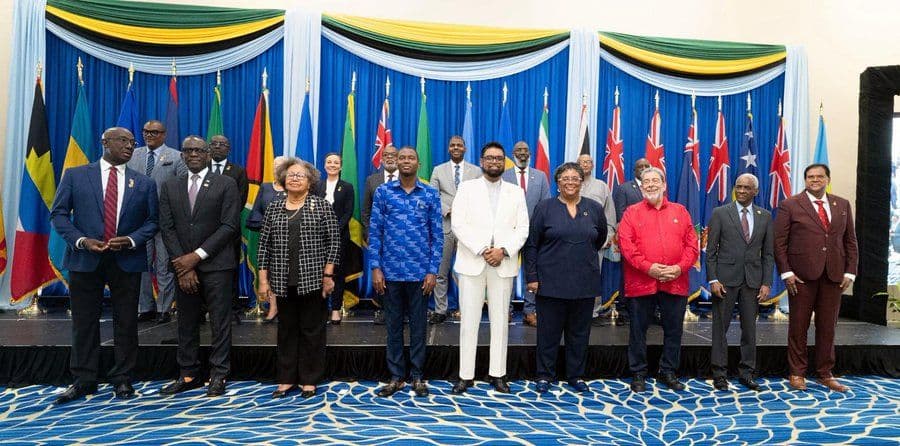CARICOM Leaders Advance Regional Integration and Call for Stronger Africa-Caribbean Cooperation

Aug 1, 2024
The 47th Regular Meeting of the Conference of Heads of Government of the Caribbean Community (CARICOM), held from 28–30 July 2024 in St. George’s, Grenada, reaffirmed the region’s commitment to deepening integration and strengthening partnerships to confront shared challenges in health, climate resilience, and economic development.
Chaired by the Honourable Dickon Mitchell, Prime Minister of Grenada, the meeting gathered Heads of Government and high-level representatives from Member and Associate States. Despite the recent devastation caused by Hurricane Beryl, which impacted eight CARICOM countries, the conference demonstrated unity and resolve to advance strategic priorities across the region.
A Resilient and Unified Response to Crises
Acknowledging the climate crisis as an existential threat to Small Island Developing States (SIDS), leaders emphasized the urgency of climate action and reiterated their call for a robust, accessible, and responsive Loss and Damage Fund ahead of COP29. The region committed to speaking with one voice during international climate negotiations, with each Member State delivering a unified message that centers SIDS’ vulnerabilities and development needs.
The post-Beryl recovery efforts received strong regional backing. A CARICOM Sub-Committee was established to develop financing strategies for recovery, and regional institutions such as CDEMA and CARPHA were praised for their coordinated responses. CARICOM also urged financial institutions to support the agricultural sector, which suffered over US$159 million in losses.
Health and Technology as Pillars of Sustainable Development
Health featured prominently on the agenda, including renewed calls for political and technical partnerships to strengthen regional health systems. The Health Development Partnership for Africa and the Caribbean (HeDPAC), initiated by Barbados, Guyana, and Rwanda, was highlighted as a key South-South platform to enhance health workforce development, improve resilience, and foster local production of medical supplies.
Prime Minister Mia Amor Mottley of Barbados and Dr. Haileyesus Getahun, CEO of HeDPAC, presented for the Heads of Government about HeDPAC and the role in fostering collaboration between Africa and the Caribbean.
Member States were invited to join the partnership, which also supports regulatory capacity-building, digital health systems, and scientific collaboration, especially relevant given the lessons learned during the COVID-19 pandemic.
Digital transformation was also prioritized, with the adoption of the CARICOM Strategy for Regional Digital Resilience 2025–2030. Commitments included launching a telemedicine pilot, training citizens in data analytics and AI, and establishing a CARICOM Digital Health Strategy and an AI Centre of Excellence in Grenada.
Strengthening Regional Cooperation and Economic Integration
Significant updates were shared on the CARICOM Single Market and Economy (CSME), with progress reported on harmonizing business laws, developing a regional industrial policy, and updating trade regimes. Leaders agreed to continue addressing policy and infrastructure gaps in transportation, with a regional air transport symposium planned for early 2025 and further development of the intra-regional ferry service.
The Heads of Government also addressed pressing regional and international concerns, including the situation in Haiti, border issues involving Belize and Guyana, and ongoing crime and violence.
A Call for Deeper Global and Diaspora Engagement
Engagements with civil society, the private sector, youth, and international partners, including the UN Permanent Forum for People of African Descent and the Commonwealth, underscored the importance of inclusive governance. CARICOM leaders endorsed proposals to deepen diaspora ties and advocate jointly for reparative justice, global financial reform, and ocean sustainability.
As the region looks ahead to the 48th Regular Meeting in Barbados in February 2025, the 47th Conference reaffirmed CARICOM’s vision: a resilient, integrated, and globally engaged Caribbean, forging strategic alliances within and beyond its shores to secure a more just and sustainable future.


